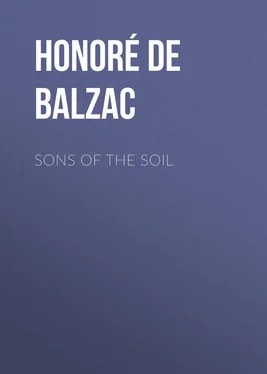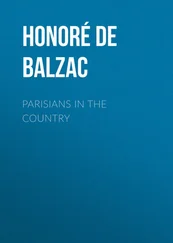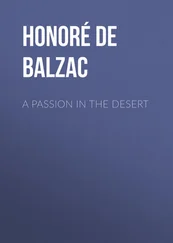Honoré Balzac - Sons of the Soil
Здесь есть возможность читать онлайн «Honoré Balzac - Sons of the Soil» — ознакомительный отрывок электронной книги совершенно бесплатно, а после прочтения отрывка купить полную версию. В некоторых случаях можно слушать аудио, скачать через торрент в формате fb2 и присутствует краткое содержание. Жанр: literature_19, foreign_antique, foreign_prose, на английском языке. Описание произведения, (предисловие) а так же отзывы посетителей доступны на портале библиотеки ЛибКат.
- Название:Sons of the Soil
- Автор:
- Жанр:
- Год:неизвестен
- ISBN:нет данных
- Рейтинг книги:5 / 5. Голосов: 1
-
Избранное:Добавить в избранное
- Отзывы:
-
Ваша оценка:
- 100
- 1
- 2
- 3
- 4
- 5
Sons of the Soil: краткое содержание, описание и аннотация
Предлагаем к чтению аннотацию, описание, краткое содержание или предисловие (зависит от того, что написал сам автор книги «Sons of the Soil»). Если вы не нашли необходимую информацию о книге — напишите в комментариях, мы постараемся отыскать её.
Sons of the Soil — читать онлайн ознакомительный отрывок
Ниже представлен текст книги, разбитый по страницам. Система сохранения места последней прочитанной страницы, позволяет с удобством читать онлайн бесплатно книгу «Sons of the Soil», без необходимости каждый раз заново искать на чём Вы остановились. Поставьте закладку, и сможете в любой момент перейти на страницу, на которой закончили чтение.
Интервал:
Закладка:
“It seems to me you are making him a little thief, like all the rest,” said Sibilet; “he never lies down at night without some sin on his conscience.”
“Ha! Monsieur Sibilet, his conscience is as clean as yours any day! Poor child! what can he steal? A little grass! that’s better than throttling a man! He don’t know mathematics like you, nor subtraction, nor addition, nor multiplication, – you are very unjust to us, that you are! You call us a nest of brigands, but you are the cause of the misunderstandings between our good landlord here, who is a worthy man, and the rest of us, who are all worthy men, – there ain’t an honester part of the country than this. Come, what do you mean? do I own property? don’t I go half-naked, and Mouche too? Fine sheets we slept in, washed by the dew every morning! and unless you want the air we breathe and the sunshine we drink, I should like to know what we have that you can take away from us! The rich folks rob as they sit in their chimney-corners, – and more profitably, too, than by picking up a few sticks in the woods. I don’t see no game-keepers or patrols after Monsieur Gaubertin, who came here as naked as a worm and is now worth his millions. It’s easy said, ‘Robbers!’ Here’s fifteen years that old Guerbet, the tax-gatherer at Soulanges, carries his money along the roads by the dead of night, and nobody ever took a farthing from him; is that like a land of robbers? has robbery made us rich? Show me which of us two, your class or mine, live the idlest lives and have the most to live on without earning it.”
“If you were to work,” said the abbe, “you would have property. God blesses labor.”
“I don’t want to contradict you, M’sieur l’abbe, for you are wiser than I, and perhaps you’ll know how to explain something that puzzles me. Now see, here I am, ain’t I? – that drunken, lazy, idle, good-for-nothing old Fourchon, who had an education and was a farmer, and got down in the mud and never got up again, – well, what difference is there between me and that honest and worthy old Niseron, seventy years old (and that’s my age) who has dug the soil for sixty years and got up every day before it was light to go to his work, and has made himself an iron body and a fine soul? Well, isn’t he as bad off as I am? His little granddaughter, Pechina, is at service with Madame Michaud, whereas my little Mouche is as free as air. So that poor good man gets rewarded for his virtues in exactly the same way that I get punished for my vices. He don’t know what a glass of good wine is, he’s as sober as an apostle, he buries the dead, and I – I play for the living to dance. He is always in a peck o’ troubles, while I slip along in a devil-may-care way. We have come along about even in life; we’ve got the same snow on our heads, the same funds in our pockets, and I supply him with rope to ring his bell. He’s a republican and I’m not even a publican, – that’s all the difference as far as I can see. A peasant may do good or do evil (according to your ideas) and he’ll go out of the world just as he came into it, in rags; while you wear the fine clothes.”
No one interrupted Pere Fourchon, who seemed to owe his eloquence to his potations. At first Sibilet tried to cut him short, but desisted at a sign from Blondet. The abbe, the general, and the countess, all understood from the expression of the writer’s eye that he wanted to study the question of pauperism from life, and perhaps take his revenge on Pere Fourchon.
“What sort of education are you giving Mouche?” asked Blondet. “Do you expect to make him any better than your daughters?”
“Does he ever speak to him of God?” said the priest.
“Oh, no, no! Monsieur le cure, I don’t tell him to fear God, but men. God is good; he has promised us poor folks, so you say, the kingdom of heaven, because the rich people keep the earth to themselves. I tell him: ‘Mouche! fear the prison, and keep out of it, – for that’s the way to the scaffold. Don’t steal anything, make people give it to you. Theft leads to murder, and murder brings down the justice of men. The razor of justice, — that’s what you’ve got to fear; it lets the rich sleep easy and keeps the poor awake. Learn to read. Education will teach you ways to grab money under cover of the law, like that fine Monsieur Gaubertin; why, you can even be a land-steward like Monsieur Sibilet here, who gets his rations out of Monsieur le comte. The thing to do is to keep well with the rich, and pick up the crumbs that fall from their tables.’ That’s what I call giving him a good, solid education; and you’ll always find the little rascal on the side of the law, – he’ll be a good citizen and take care of me.”
“What do you mean to make of him?” asked Blondet.
“A servant, to begin with,” returned Fourchon, “because then he’ll see his masters close by, and learn something; he’ll complete his education, I’ll warrant you. Good example will be a fortune to him, with the law on his side like the rest of you. If M’sieur le comte would only take him in his stables and let him learn to groom the horses, the boy will be mighty pleased, for though I’ve taught him to fear men, he don’t fear animals.”
“You are a clever fellow, Pere Fourchon,” said Blondet; “you know what you are talking about, and there’s sense in what you say.”
“Oh, sense? no; I left my sense at the Grand-I-Vert when I lost those silver pieces.”
“How is it that a man of your capacity should have dropped so low? As things are now, a peasant can only blame himself for his poverty; he is a free man, and he can become a rich one. It is not as it used to be. If a peasant lays by his money, he can always buy a bit of land and become his own master.”
“I’ve seen the olden time and I’ve seen the new, my dear wise gentleman,” said Fourchon; “the sign over the door has changed, that’s true, but the wine is the same, – to-day is the younger brother of yesterday, that’s all. Put that in your newspaper! Are we poor folks free? We still belong to the same parish, and its lord is always there, – I call him Toil. The hoe, our sole property, has never left our hands. Let it be the old lords or the present taxes which take the best of our earnings, the fact remains that we sweat our lives out in toil.”
“But you could undertake a business, and try to make your fortune,” said Blondet.
“Try to make my fortune! And where shall I try? If I wish to leave my own province, I must get a passport, and that costs forty sous. Here’s forty years that I’ve never had a slut of a forty-sous piece jingling against another in my pocket. If you want to travel you need as many crowns as there are villages, and there are mighty few Fourchons who have enough to get to six of ‘em. It is only the draft that gives us a chance to get away. And what good does the army do us? The colonels live by the solider, just as the rich folks live by the peasant; and out of every hundred of ‘em you won’t find more than one of our breed. It is just as it is the world over, one rolling in riches, for a hundred down in the mud. Why are we in the mud? Ask God and the usurers. The best we can do is to stay in our own parts, where we are penned like sheep by the force of circumstances, as our fathers were by the rule of the lords. As for me, what do I care what shackles they are that keep me here? let it be the law of public necessity or the tyranny of the old lords, it is all the same; we are condemned to dig the soil forever. There, where we are born, there we dig it, that earth! and spade it, and manure it, and delve in it, for you who are born rich just as we are born poor. The masses will always be what they are, and stay what they are. The number of us who manage to rise is nothing like the number of you who topple down! We know that well enough, if we have no education! You mustn’t be after us with your sheriff all the time, – not if you’re wise. We let you alone, and you must let us alone. If not, and things get worse, you’ll have to feed us in your prisons, where we’d be much better off than in our homes. You want to remain our masters, and we shall always be enemies, just as we were thirty years ago. You have everything, we have nothing; you can’t expect we should ever be friends.”
Читать дальшеИнтервал:
Закладка:
Похожие книги на «Sons of the Soil»
Представляем Вашему вниманию похожие книги на «Sons of the Soil» списком для выбора. Мы отобрали схожую по названию и смыслу литературу в надежде предоставить читателям больше вариантов отыскать новые, интересные, ещё непрочитанные произведения.
Обсуждение, отзывы о книге «Sons of the Soil» и просто собственные мнения читателей. Оставьте ваши комментарии, напишите, что Вы думаете о произведении, его смысле или главных героях. Укажите что конкретно понравилось, а что нет, и почему Вы так считаете.












